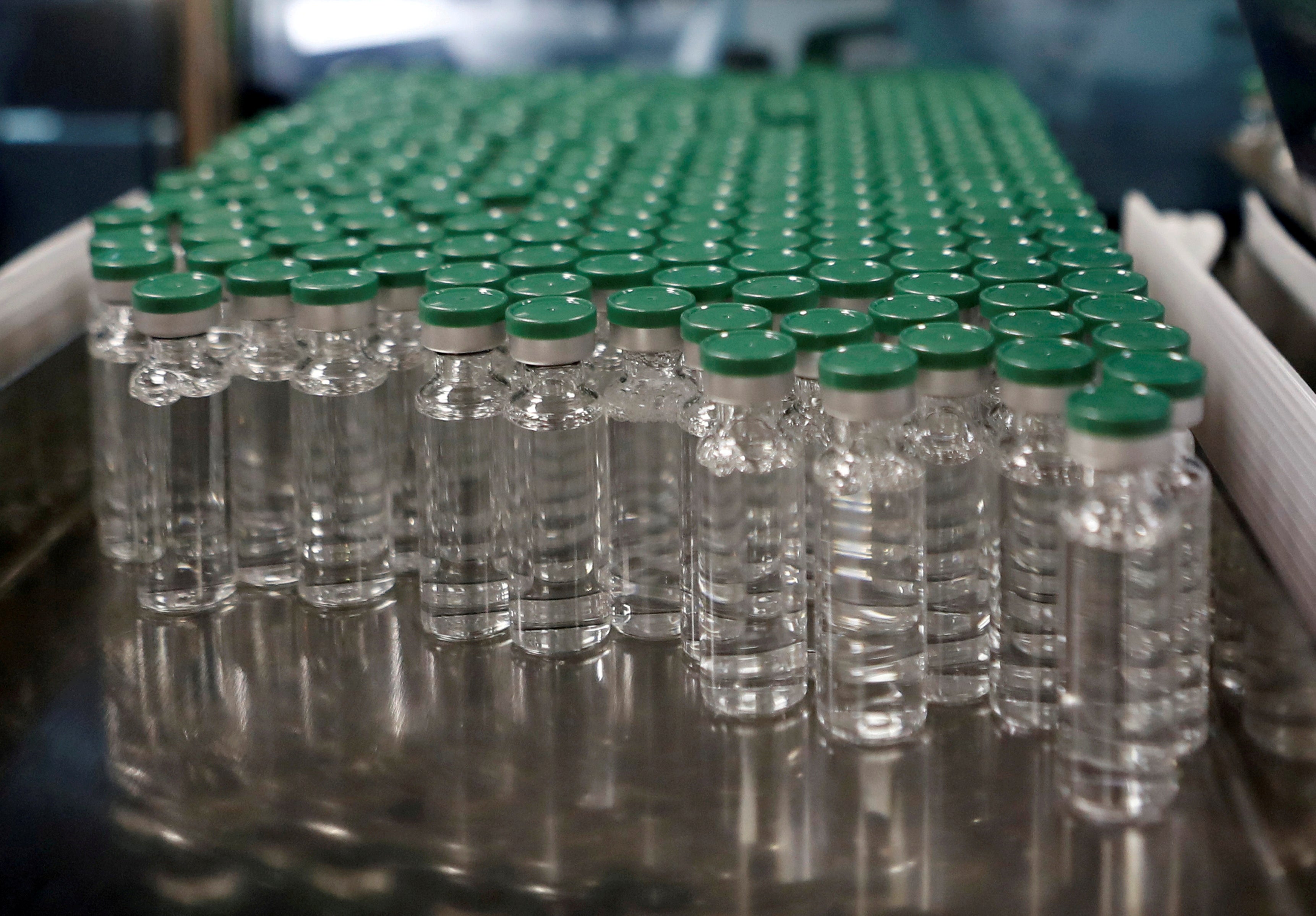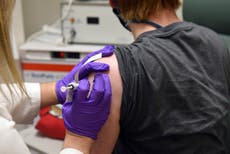Nine out of 10 in poorer countries set to miss out on Covid jabs as richer nations hoard vaccines
An alliance of charities has called for technology and intellectual property to be shared to allow billions more doses to be manufactured, Samuel Osborne reports


Rich countries have hoarded enough doses to vaccinate their entire populations against Covid-19 nearly three times over, while nine in 10 people in poorer countries are set to miss jabs next year, campaigners have cautioned.
As the UK begins to vaccinate its population against the coronavirus, a group of organisations has highlighted that rich nations representing just 14 per cent of the world's population have ordered 53 per cent of all of the most promising vaccines.
The organisations, including Oxfam, Amnesty International, Global Justice Now and Frontline AIDS, have formed an alliance to call for a People's Vaccine and to demand governments and pharmaceutical corporations openly share their technology and intellectual property to allow billions more doses to be manufactured and made available to all who need them.
Rich nations are “stockpiling vaccines at the expense of supplies for the rest of the world”, Anna Marriott, Oxfam's health policy adviser, told The Independent. “We are calling on each government to ask that pharmaceutical companies share the science, technology and know-how to produce the vaccines. That will unlock the supply problem and get as many manufacturers around the world as possible joining in the efforts to scale up production.”
Ms Marriott added: “We're seeing millions of additional people being pushed into poverty; we're seeing people missing out on HIV treatment, increasing numbers of mothers dying because they can't access services that are being reoriented towards the Covid crisis. Just as we've seen the negative impact here, we need to be doing all we can to bring the crisis to end in those countries as well.”
The alliance of organisations analysed the deals between countries and the eight leading vaccine candidates to find 67 low and lower to middle-income countries are at risk of being left behind as rich countries move to escape the pandemic. Five of those countries – Kenya, Myanmar, Nigeria, Pakistan and Ukraine – have reported nearly 1.5 million cases between them.
So far, all of the doses produced by Moderna and 96 per cent of Pfizer/BioNTech's have been acquired by rich countries. However, the campaigners said even though Oxford/AstraZeneca have pledged to provide 64 per cent of their doses to people in developing nations, they can still only reach 18 per cent of the world’s population at most next year. Meanwhile, the majority of developing nations have to share access to the Covax vaccine programme, which is run by the World Health Organisation and aims to provide a global solution to the pandemic.
Ms Marriott said: “If pharmaceutical companies shared the recipe of how to make this vaccine and proactively supported other manufacturers in actually producing it, then we could see them scale up production to that level so we desperately need.”
The People's Vaccine would be a “global public good”, she said, in that it would be “owned by the public, not individual pharmaceutical companies” and “free of charge for all people, not produced at a profit, and available equitably across the world for the people that need it”.
Currently, “hope is being monopolised by rich countries,” Steve Cockburn, Amnesty International's head of economic and social justice, told The Independent. “There is a huge amount that needs to be done to make sure people everywhere have access to these vaccines, for moral reasons but also for good scientific [reasons] in that we can only defeat Covid-19 if everyone is vaccinated.”
He said rich countries have human rights obligations to cooperate and provide assistance to countries that need help but also to avoid actions that would harm their access.
“We understand that governments will want to buy vaccines for their own people, but the scale of the deals that they're doing is having a negative impact on others,” he said. “That is a violation of their obligations not to harm the right to health of other countries. This is about morality but it's also about human rights obligations and it's about good public health as well.”
He warned inequalities in the distribution of vaccines could see wealthier countries unlock their economies and begin their recovery while poorer countries continue to suffer.
“The economic impact and the impact on people's livelihoods in poor countries has been extraordinary. Many countries don't have the resources to do things like the furlough scheme like we've had in the UK. People have lost their jobs and lost their incomes. It's been one of the biggest hits to global poverty that we've seen in generations.”
He added: “A vaccine offers an opportunity and a solution and a hope for these countries to rebuild. The longer that is withheld, the deeper the problems become for poorer countries. If we want to get the global economy back working, people trading with each other, people travelling, then we need global access, otherwise, no one is fully free until everyone is able to access a vaccine.”
The People's Vaccine Alliance has called for all pharmaceutical corporations working on Covid-19 vaccines to openly share their technology through the World Health Organisation Covid-19 Technology Access Pool. It has also said governments should ensure the vaccines are made a global public good by being free of charge to the public, freely distributed and based on need.
Dr Mohga Kamal Yanni, from the People’s Vaccine Alliance, said: “Rich countries have enough doses to vaccinate everyone nearly three times over, whilst poor countries don’t even have enough to even reach health workers and people at risk.
“The current system, where pharmaceutical corporations use government funding for research, retain exclusive rights and keep their technology secret to boost profits, could cost many lives.”
Lois Chingandu, director of Frontline AIDS, said: “This pandemic is a global problem that requires a global solution. The global economy will continue to suffer so long as much of the world does not have access to a vaccine.
“We need to put pharmaceutical industry profit aside during this unprecedented pandemic, both to save humanity and the economy.”


Join our commenting forum
Join thought-provoking conversations, follow other Independent readers and see their replies
Comments